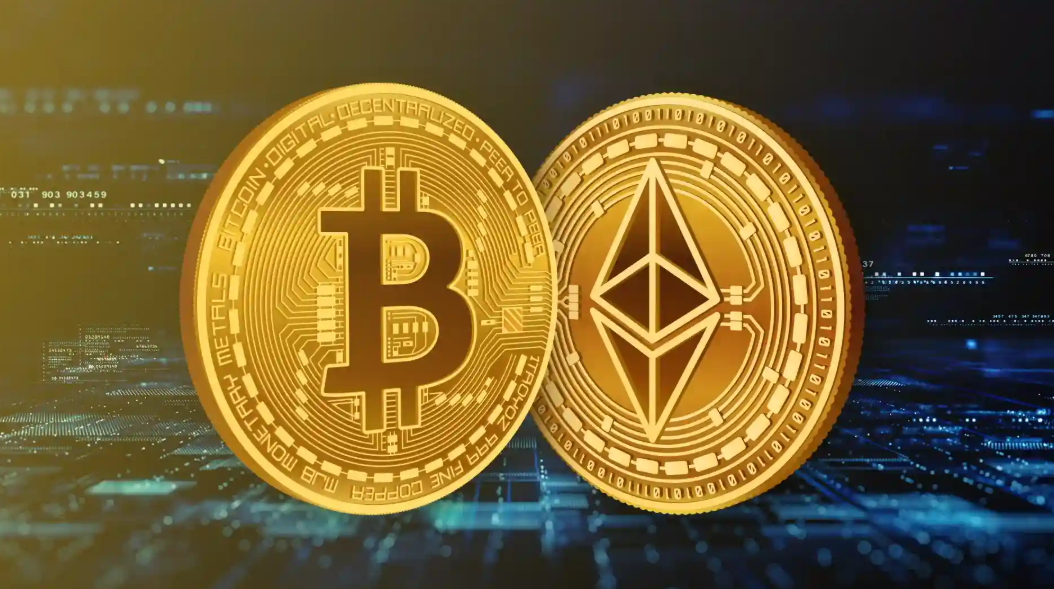As the world grows more connected, the financial systems that once relied on rigid borders and centralized control are being reimagined. We’re entering a new era—one where capital moves faster, access is more inclusive, and trust is no longer bound to traditional institutions.
Underlying Factors and Resulting Effects

In this emerging landscape, technology is not just enabling new financial tools; it’s transforming the very logic of how money works. From instant global transfers to peer-to-peer financial services, we’re seeing the rise of a borderless economy where value flows freely, 24/7, without the traditional gatekeepers.
Why the Future of Finance Won’t Wait for Borders?
But what does it really mean to have a financial system that operates beyond borders?
-
Access over privilege: Individuals from underserved regions can now access tools that were once reserved for the few.
-
Speed over settlement lags: Value moves in seconds, not days—reshaping trade, remittances, and global business.
-
Transparency over opacity: Systems built with transparency at their core are replacing opaque processes that have long dominated finance.
-
Innovation over inertia: New models of finance are being built from the ground up, offering alternatives to legacy structures.
This future isn’t speculative—it’s already happening. And while challenges around regulation, security, and education remain, one thing is clear: the boundaries around money are dissolving, and with that, new opportunities are being unlocked for individuals, businesses, and economies worldwide.
Underlying Factors and Resulting Effects
- Technological Advancements: The rise of technologies like blockchain, cryptocurrencies, digital payment systems, and sophisticated data analytics is breaking down traditional barriers. These technologies enable faster, cheaper, and more transparent cross-border transactions and financial services.
- Increased Global Interconnectivity: Businesses and individuals are increasingly operating on a global scale. This necessitates financial solutions that can seamlessly navigate different jurisdictions and currencies.
- Evolving Regulatory Landscape: While regulations still exist, there’s a growing trend towards harmonization and the development of frameworks that facilitate cross-border financial activities. Regulatory sandboxes and international collaborations are fostering innovation in this space.
- Democratization of Finance: Borderless finance can lead to greater financial inclusion by providing access to services for individuals and businesses in underserved regions, regardless of their physical location.
- New Business Models: The concept fosters the emergence of innovative business models that cater to a global clientele, offering services that were previously constrained by geographical boundaries.
- Enhanced Efficiency and Reduced Costs: By eliminating intermediaries and streamlining processes, borderless finance can significantly reduce the costs and time associated with international financial transactions.
- Greater Investment Opportunities: Investors gain access to a wider range of global investment opportunities, fostering diversification and potentially higher returns.
- Challenges and Considerations: While the future is borderless, it also presents challenges related to regulatory arbitrage, cybersecurity risks, and the need for robust international cooperation to ensure stability and prevent illicit activities.
In essence, “The Future of Finance: Beyond Borders” paints a picture of a more interconnected, accessible, efficient, and innovative global financial ecosystem. It signifies a move away from traditional, geographically siloed financial systems towards a more fluid and integrated global landscape.
The Future of Finance: Beyond Borders
As the global economy continues to digitize, the barriers that once defined financial systems—geographical, institutional, and regulatory—are beginning to erode. What emerges is a new kind of financial network: agile, inclusive, and fundamentally restructured to meet the demands of a real-time, globally connected world.
This shift isn’t simply about new tools or platforms; it represents a transformation in how we understand the very purpose and possibility of money. In this new financial paradigm, the focus has moved from control to coordination, from intermediaries to protocols, and from exclusivity to universal access.
Borderless Finance in Action
We’re already witnessing the tangible effects of this transformation:
-
Instant Global Transfers: Cross-border payments that once took days and incurred high fees now complete in seconds—without relying on traditional correspondent banking chains.
-
Peer-to-Peer Finance: Individuals can lend, borrow, or transact directly with each other through decentralized platforms, eliminating costly middlemen.
-
24/7 Market Access: Unlike legacy systems tied to business hours, borderless finance operates continuously, aligning with the needs of a hyper-connected world.
Why This Matters
At the heart of this transformation are four fundamental shifts:
1. Access Over Privilege
Financial tools are no longer reserved for the few. With only a smartphone and internet access, people in underserved or unbanked regions can now participate in the global economy—saving, investing, and building wealth in ways that were previously out of reach.
2. Speed Over Settlement Lags
Frictionless, near-instant transactions are changing the game for global commerce. Businesses no longer wait days for payments to clear. Families sending remittances don’t lose precious value to delays or fees. Capital moves at the speed of thought.
3. Transparency Over Opacity
Public and auditable systems offer greater accountability than legacy models that operate behind closed doors. From transaction records to governance structures, transparency is becoming a default—not a feature.
4. Innovation Over Inertia
Legacy financial institutions, bound by outdated infrastructure and regulatory drag, are being challenged by agile, open-source financial ecosystems. These new systems aren’t iterating on the past—they’re building the future from scratch.
Looking Ahead
The transition toward a borderless financial world isn’t without challenges. Regulatory uncertainty, security concerns, and the digital divide remain real obstacles. But the momentum is undeniable. As technology continues to evolve, so too will our understanding of what finance can be—open, programmable, and available to all.
In the same way the internet redefined communication, this new wave of financial innovation is redefining trust, ownership, and value. And those who embrace it early—whether individuals, institutions, or nations—will help shape the rules of the next financial era.
In conclusion, the vision of “The Future of Finance: Beyond Borders” signifies a profound transformation driven by technological innovation, increasing global interconnectedness, and an evolving regulatory landscape. This shift promises a more accessible, efficient, and inclusive global financial ecosystem, unlocking new opportunities for individuals and businesses worldwide. While challenges related to regulation and security must be addressed through international cooperation, the overarching trend points towards a future where financial services transcend geographical limitations, fostering greater global economic integration and innovation.
Ready to start your cryptocurrency journey?
If you’re interested in exploring the world of crypto trading, here are some trusted platforms where you can create an account:
🔹 Binance – A global leader in cryptocurrency trading.
🔹 Bybit – A user-friendly platform for both beginners and advanced traders.
These platforms offer innovative features and a secure environment for trading and learning about cryptocurrencies. Join today and start exploring the opportunities in this exciting space!
🚀 Want to stay updated with the latest insights and discussions on cryptocurrency?
Join our crypto community for news, discussions, and market updates: OCBCryptoHub on Telegram.
📩 For collaborations and inquiries: datnk710@gmail.com
Disclaimer: Always do your own research (DYOR) and ensure you understand the risks before making any financial decisions.




